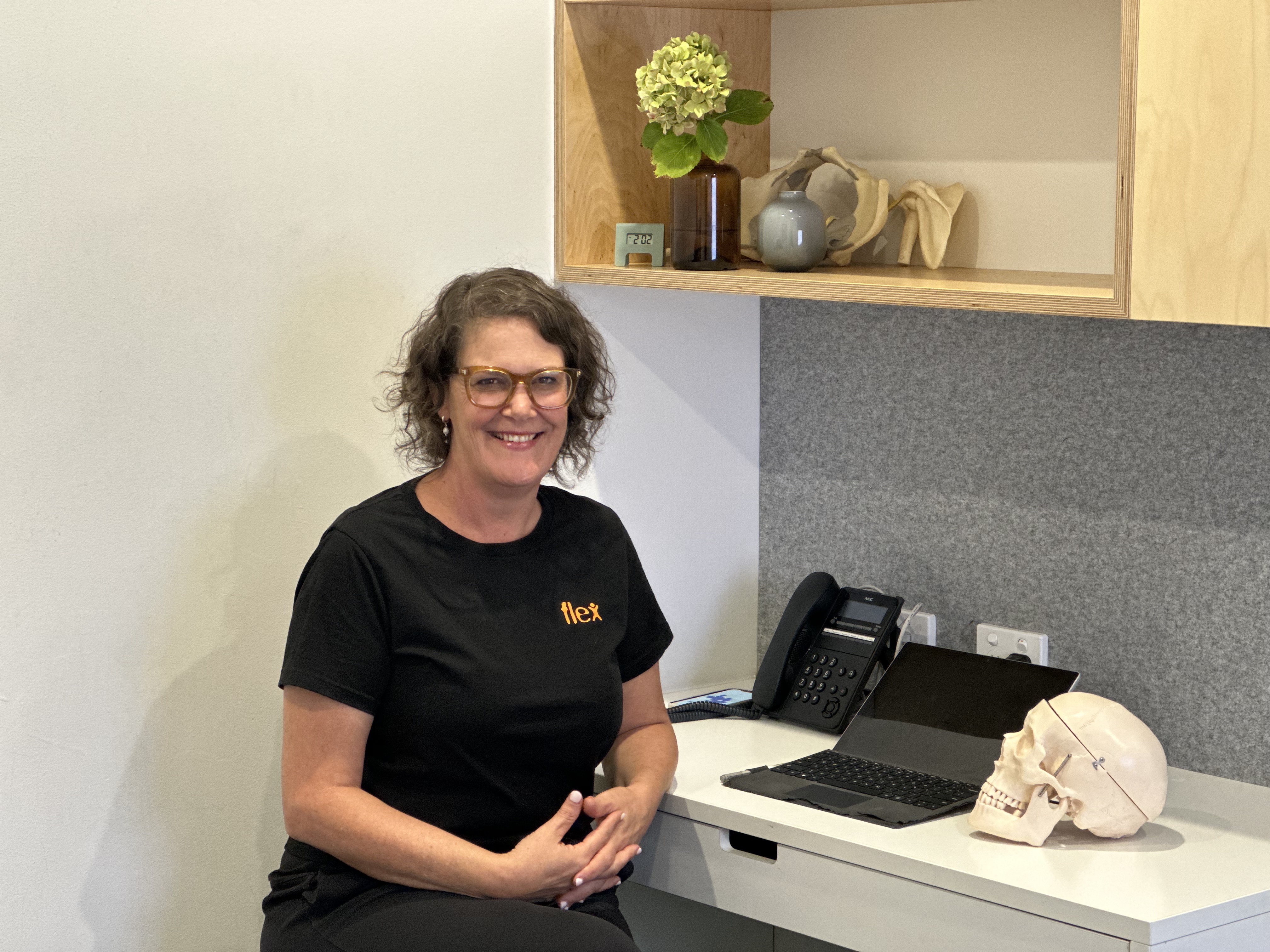TMD and Jaw Physiotherapy
Jeannie Burnett has specialised skills in assessing jaw motion and tension in mastication muscles. She has 15 years experience treating jaw issues in South Australia and in Canberra, in addition, she recently completed a Master Science in Medicine in Pain Management – Orofacial Pain. This has allowed her to gain a deeper understanding of the pathologies that can contribute to orofacial pain (pain in the jaw and head), including pain from teeth, neck issues, headache and the musculoskeletal pain of TMD.
Book your appointment with Jeannie at our Norwood clinic online here
What is TMD?
TMD is a term that is used for pain and or dysfunction involving the temporomandibular joint and related structures.
The two main types are:
- Arthralgia – pain arising from the joint structures.
- Myalgia – pain arising from the muscles of mastication.
Arthralgia commonly involves dysfunction involving the articular disc. This might be experienced as painless clicking, painful clicking, or crepitus. Sometimes the disc can be displaced and block the normal motion of the jawbone, and this can lead to a closed lock.
Myalgia is often experienced as pain in the muscles along the jaw and possibly in the temples. Common symptoms include jaw pain, headaches in temples, pressure in ear, crunching and/or clicking that may or may not be painful.
What can a Jaw Physiotherapist do to help?

At your appointment, Jeannie can identify whether your pain is likely to be from the jaw or if referral to either dentist or medical practitioner indicated. Identifying the type of TMD allows accurate explanation of the diagnosis, as well as a clear understanding of treatment aims in clinic as well as at home to optimise your management of pain.
Jeannie will apply manual therapy techniques involving gentle TMJ stretches to improve jaw motion such as soft tissue mobilisation and in some case dry needling.
What can you do to help manage your symptoms?
Once a clear diagnosis has been made, Jeannie will teach you how to manage either the jaw motion and or the muscle tension throughout the day. There is strong evidence that doing so can assist in reducing the pain and dysfunction that TMD causes. Jeannie can refer you to an appropriate dentist if required, as well as communicate with your medical team should your jaw function does not improve adequately, and further referrals are indicated.
Orofacial Pain and Headaches
A jaw physiotherapist will assess the function of the TMJ and associated muscles. Commonly, headaches and neck issues can contribute to pain extending into the head and face. The jaw physiotherapy session will also involve screening for neck issues, headaches, and general spinal and posture patterns.
In your session, you will be asked about any history of headaches, in particular migraines and /or tension-type headaches. These are the two most prevalent primary headaches that present to medical practitioners. Tension headaches can stem from the upper neck, but there is also a subset of tension-type headaches that can be classified as jaw-related.
The structures of the upper neck (C1-3) share common nerve pathways with the trigeminal nerve, the cranial nerve that supplies sensation of the face, and the motor supply of the muscles of chewing (muscles of mastication).
It is for these reasons that the term jaw physiotherapy may be used interchangeably with orofacial pain physiotherapy.
Jeannie and the team at Flex look forward to educating you about your body and assisting you in the process of gaining control of your pain.
Book your appointment with Jeannie at our Norwood clinic online here